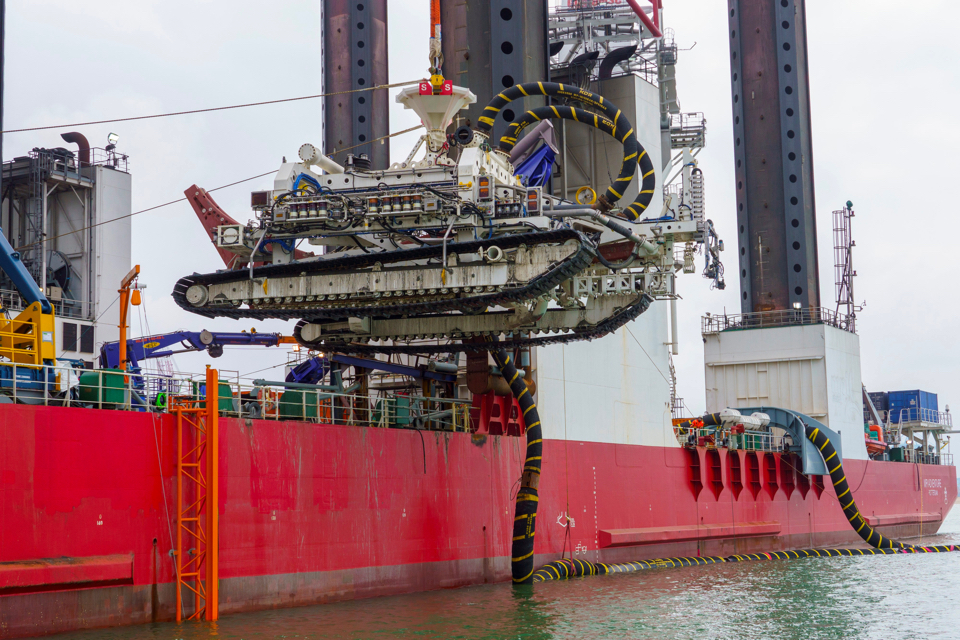Dredger and maritime service provider Van Oord has had a challenging 2019. The Rotterdam-based company claims it had to contend with difficult conditions in its most important market, dredging.
Turnover dropped by twelve per cent to over 1.6 billion euros last year. At the dredging division, Van Oord’s revenue fell to 690 million euros, from 852 million in 2018. The tender and award volumes were considerably lower than a year earlier, the company says. Fleet capacity utilisation was comparable to 2018.
Offshore
Offshore wind activities also saw a drop in revenue, but the division for pipeline and offshore installation projects saw a slight increase. The market outlook for offshore wind is positive, with high tender volumes, says Van Oord. At the same time, the risk profile is increasing, driven by technical and environmental challenges, price pressure, new competitors and complex supply chains.
For offshore oil and gas, a weaker energy demand in 2020 combined with the global outbreak of the coronavirus makes the outlook for 2020 and beyond uncertain.
The Netherlands
Turnover also climbed in the Dutch business unit and is related to various large projects, including the iconic Afsluitdijk reinforcement project and the A16 Rotterdam motorway project. Tender volume was low. Projects and tenders were postponed due to problems with per- and polyfluoroalkyl substances (PFAS) and the government’s ‘Integrated Approach to Nitrogen’ (PAS) policy. The full impact of these issues on clients and contractors in the Netherlands is uncertain.
Net profit halved
Net profit halved to 46 million euros, from 92 million euros in 2018. The operating result was also lower. Measures are being taken to restore profitable growth. Van Oord had an order book worth 3.6 billion euros at the end of last year. The company won 1.6 billion euros in orders in 2019.
Investments
Van Oord has ordered a third trailing suction hopper dredger. The vessel is similar to the two already ordered in 2018: each one has a hopper capacity of approximately 10,500 cubic metres and is equipped with an LNG fuel system. Orders have also been placed for two energy efficient water injection vessels.
The trailing suction hopper dredger Vox Amalia, the latest addition to the fleet, started mid-March on its first job to reinforce the coastline near Den Helder. Older vessels will be recycled or sold. To support cable laying activities, the company acquired the Deep Dig-it, a trencher that can bury cables up to 5 metres below the seabed. The trencher will make its debut in summer 2020 on the Hollandse Kust Zuid project for TenneT.
Corona crisis consequences still unknown
The long-term outlook is good, says Van Oord. During the corona crisis, the company will continue to carry out projects at the request of clients for as long as possible.
The company does state the annual report 2019 was finalised before the outbreak of the corona crisis. As such, the outlook will be affected by this crisis. Van Oord has not taken into account the consequences of this crisis in the outlook as they are unknown.
Picture: Tests with the Deep Dig-It trencher (by Van Oord).








